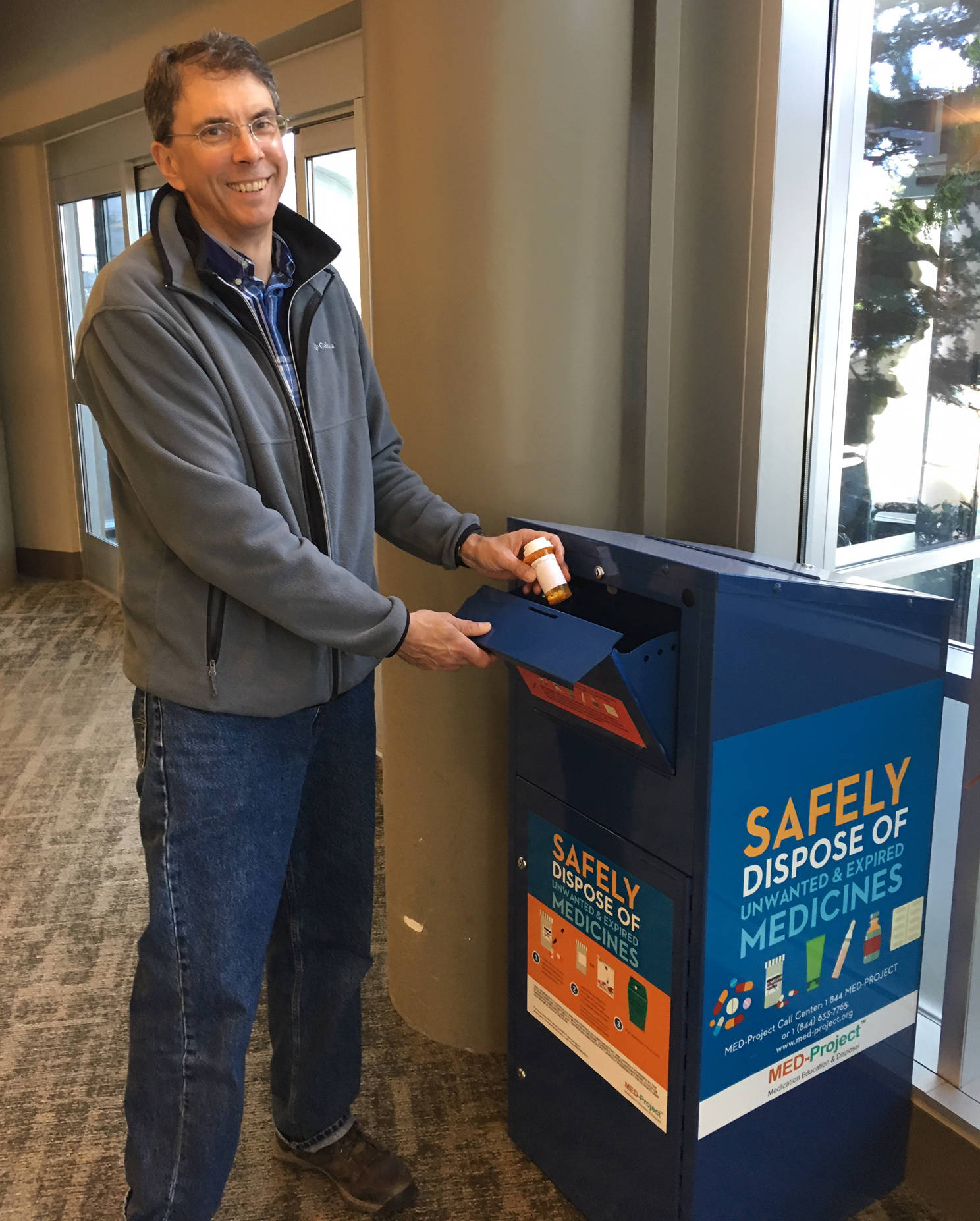When it comes to the misuse of opioids and other substances, prevention is the medicine.
Skagit County Public Health is taking that message to residents, to schools and to the community as part of a multi-pronged approach to the current opioid crisis.
For example, while Drug Take-Back Day Oct. 26 is one way to safely return unused medications, Skagit County’s Secure Medicine Return through MED Project lets you safely dispose of medications any time.
Why is that important?
- The home medicine cabinet is one of the most common places people go when looking for drugs to get high.
- Many young children are accidentally poisoned by taking medicine not intended for them.
- Medicines flushed down the toilet or thrown in the trash pollutes local waters and soil.
“Such a high proportion of people who come to have opioid addiction start with ready access to prescription medication,” explains Polly Dubbel, Communicable Disease and Environmental Health Program Manager.
Secure lockup for medications
Because data shows most people first gain improper access to medications at home, securing medications is vital. The County offers free medication lock boxes and bags to make it easier for residents to keep prescriptions away from those they weren’t intended for, including children and teens, their friends, and others.
“We encourage people to change how they think about prescriptions,” says Danica Sessions, Community Health Coordinator. “Let’s have these conversations early on with your kids and take precautions.”
Safe and easy return
Skagit County’s Secure Medicine Return allows residents to safely dispose of unneeded medicines for free by taking them to secure drop boxes, ordering free mail-back envelopes and/or picking up mail-back envelopes from convenient mailer distribution locations.
Accepted medications include prescription and over-the-counter medicines, brand name and generic medicines, controlled substances and pet medications; remove or black out personal and identifying information from labels before disposal.
Drop boxes: To find nearby MED Project safe disposal locations, enter your zipcode at med-project.org or call 1-844 MED-PROJECT (1-844-633-7765). Ten kiosks are currently available with more on the way.
Mailers: You can also order pre-paid, pre-addressed MED Project mailers through the contacts above. Standard Mailer Envelopes are for medicines in pill, powder, paste, liquid and patch forms. Injector Mailer Packages are for pre-filled products containing a sharp and auto-injectors (like expired Epi Pens). Mailers are also available at a wide variety of community locations such as libraries, community (Senior) centers, municipal buildings and some fire departments. The listing is also available at the Med-project website.
Community-wide discussions
What these initiatives point to is that prevention is key, but so is continued discussion and education about opioid use disorder and the stigma that accompanies it.
“This is a chronic, relapsing disease. It can happen quickly and it can happen to any of us,” says Kristen Ekstran, Community Health Analyst. “The more community understanding there is, the less stigma there will be, and people will find it easier to seek the help they need.”
In schools, prevention starts with the youngest grades, where programs help build resilient youth with strong, healthy coping mechanisms. In older years, a multi-pronged approach includes broad-based education, smaller group opportunities, referrals and intervention. The County is also piloting a multi-tiered mental health initiative within all seven school districts, which will greatly increase supports available for students and families.
Working with seniors, the County shares information about the safe storage and mailer bags, as well as mental health, recognizing the strong link between mental health and substance use.
Skagit County’s Public Health team, local Prevention Coalitions, or the Opioid Workgroup Leadership Team can come speak to businesses, workplaces and community organizations about opioid use, treatments and prevention – contact them today through Kristen Ekstran, kekstran@co.skagit.wa.us.




